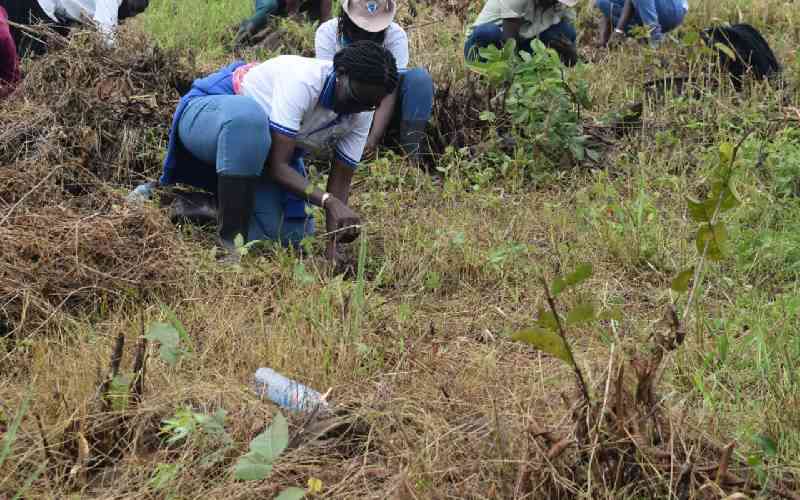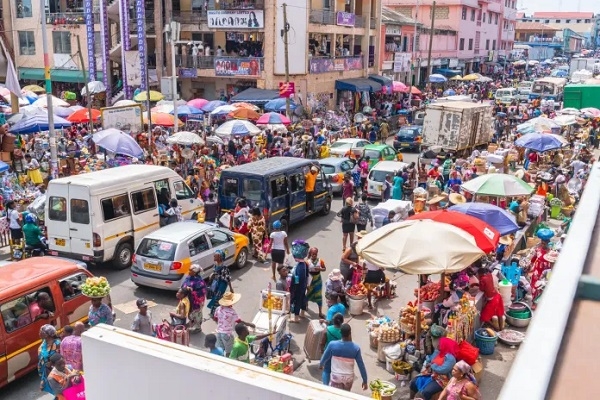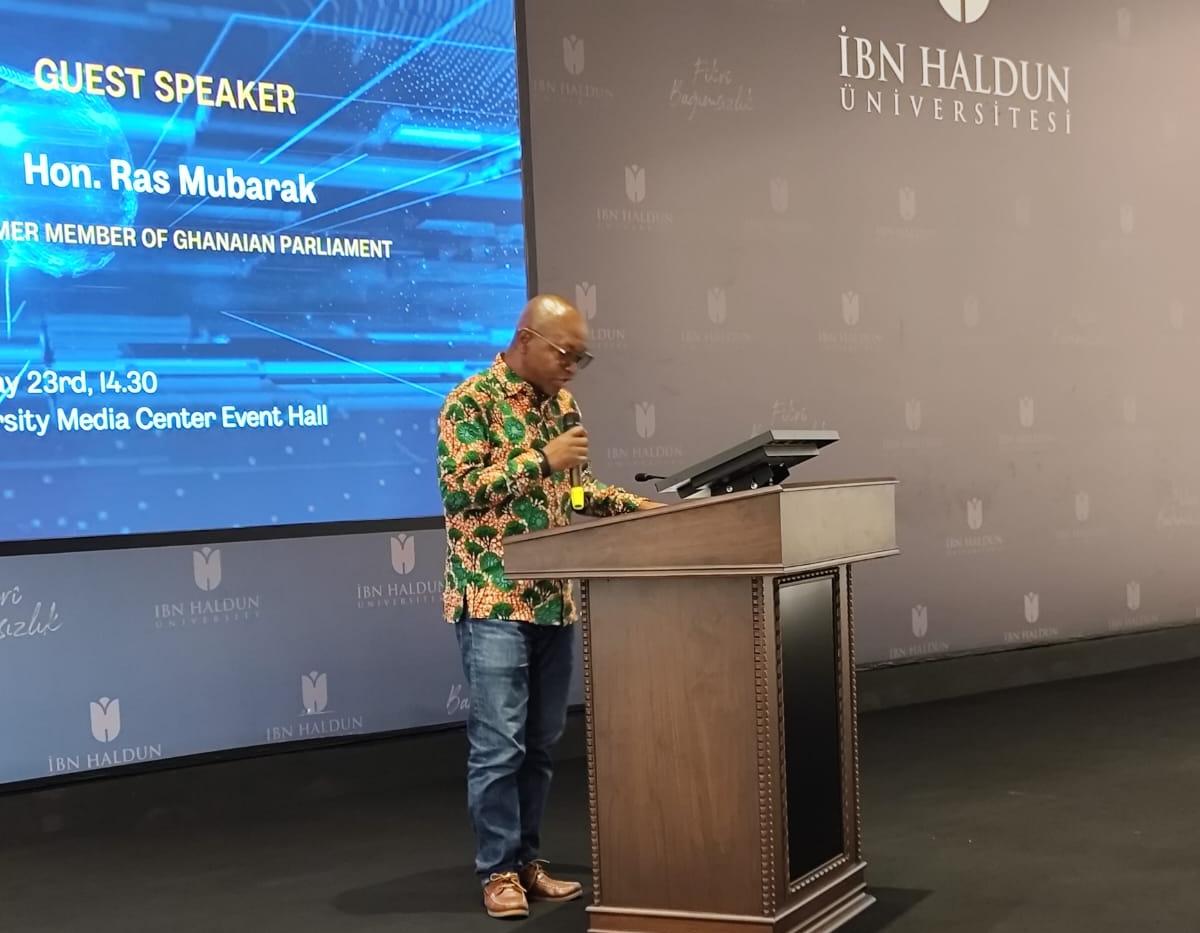Chris Koney's column: Protecting farmers, powering growth: Why Insurtech is crucial for agricultural future
Speaking on the panel Protecting Farmers, Powering Growth at the MENA InsureTech Summit in Doha was a timely opportunity to reflect on one of the most pressing and overlooked challenges in Africa’s development story: how to de-risk agriculture and turn it into a resilient engine of growth.

Nowhere is this challenge more relevant than in Ghana—a country rich in agricultural potential, blessed with fertile land and a dynamic farming population; but vulnerable to climate shocks and persistent structural constraints.
Ghana’s agricultural sector accounts for about 20 percent of GDP and employs more than a third of the labour force.
For many rural communities, agriculture is not just a livelihood—it is a way of life. But this way of life is increasingly under pressure. Erratic rainfall, prolonged droughts, floods, pest infestations and fluctuating input costs are making farming more unpredictable and less profitable.
As climate change accelerates, so too does the volatility. Farmers who are already operating at the margins are being pushed further into vulnerability. And while Ghana has made notable progress in mechanisation, digital agriculture and market linkages, the missing piece of the puzzle remains risk protection—especially through innovative and inclusive insurance models.
This is where parametric insurance and Insurtech can be game-changers. Unlike traditional insurance which compensates based on verified losses, parametric insurance pays out automatically when specific indicators—such as rainfall levels or temperature thresholds—are breached. There is no need for time-consuming assessments or lengthy disputes.
The process is faster, simpler and more transparent. For smallholder farmers in Ghana, this kind of speed is essential. When a drought hits or rains fail, waiting weeks or months for assistance is simply not an option. They need liquidity fast—to replant, recover and survive.
In Ghana, the application of parametric insurance is still in its early stages but gaining momentum. Pilot programmes using weather-indexed products have shown promise, especially when bundled with other services like input financing or agronomic advice.
The integration of mobile money has been a breakthrough—enabling digital premium collection and instant payouts, even in remote areas. The opportunity now is to take these early wins to scale and embed them within the country’s broader agricultural and financial architecture.
But scaling parametric insurance in Ghana requires more than innovation. It requires ecosystem thinking. Farmers do not live in silos, and neither should insurance.
When offered as part of a holistic value chain—alongside access to improved seeds, climate-smart inputs, credit and guaranteed markets—insurance becomes a platform for growth, not just compensation.
A farmer with insurance is more confident to take calculated risks, invest in productivity and adopt new technologies. Risk, once externalised and paralysing, becomes manageable and a foundation for opportunity.
Government has a central role in enabling this transformation. Ghana’s leadership in digital public infrastructure, financial inclusion and agriculture policy places it in a strong position to support the roll-out of inclusive Insurtech solutions.
But it will require deliberate effort. Public-private partnerships can help subsidise premiums, especially for the most vulnerable.
Investments in data infrastructure—weather stations, soil sensors, satellite mapping—are crucial to ensuring index accuracy and credibility. And regulatory frameworks must evolve to accommodate innovation while protecting consumers from predatory or poorly designed products.
Ghana’s Ministry of Food and Agriculture, together with the National Insurance Commission and partners such as the Ghana Insurers Association, have begun laying the foundation for such reforms. The Ghana Agricultural Insurance Pool (GAIP), established over a decade ago, is an example of local institutional innovation.
But to unlock true scale, the sector must embrace digital transformation fully and bring in technology players who can help automate, monitor and distribute products with lower operational costs.
There’s also a powerful argument to be made for embedding insurance within Ghana’s climate adaptation and food security strategies.
As the country experiences more frequent climate-related disruptions—from delayed rainfall in the north to coastal erosion in the south—building resilience into the agricultural sector is no longer optional; it is economic survival.
Parametric insurance, linked to early warning systems and community-based disaster preparedness, can be the financial buffer that prevents shocks from turning into crises.
Equally important is the need to build trust. For many farmers, insurance remains an abstract and often misunderstood concept. Past experiences with slow or unpaid claims, or unfamiliarity with the mechanics of index-based products, create hesitation.
Addressing this means designing with empathy: using local languages, engaging cooperatives and extension agents, and ensuring transparent communication at every stage. Technology can help, but trust must be earned—and maintained—on the ground.
Ghana also has an opportunity to position itself as a regional leader in agricultural Insurtech. With its fast-growing tech ecosystem, vibrant Fintech sector and established role as a policy trailblazer in West Africa, the country can drive innovation not just for itself, but also for neighbouring states.
By investing in home-grown Insurtech solutions tailored to local conditions, powered by local data and designed with users in mind, Ghana can help shift the continent’s narrative from one of vulnerability to one of proactive resilience.
One of the key takeaways from Doha was the need to view insurance not simply as a safety net, but as economic infrastructure.
Just like roads, irrigation systems or market access, insurance enables farmers to make decisions today with confidence about tomorrow. It creates space for long-term thinking, for investment and for upward mobility. Without it, risk remains a trap. With it, risk becomes a platform.
As Ghana continues its agricultural transformation, insurance—especially parametric and tech-enabled models—must be seen as essential; not just because it cushions loss, but because it enables growth.
It empowers farmers to dream bigger, to invest more and to see themselves not just as survivors of a fragile system, but as entrepreneurs in a dynamic economy.
The road ahead will require partnerships, experimentation and patience. But the direction is clear. To protect farmers is to power growth. And to do both, Ghana must continue embracing the tools, technologies and trust-building strategies that can turn insurance into a force for prosperity.
The future of Ghana’s agriculture doesn’t just depend on the weather. It depends on the systems we build to withstand it—and on the confidence we give to those who feed the nation.












